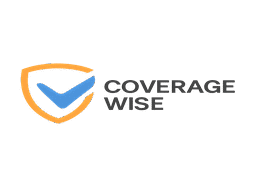Running an enterprise involves more than managing daily operations and pursuing growth. Large organizations face complex risks that can affect finances, reputation, employees, and long-term stability. Enterprise insurance coverage exists to protect companies from these risks, but understanding how it works is essential for making informed decisions. This guide explains what enterprise insurance is, why it matters, and how it helps defend a firm in an unpredictable business environment.
What Enterprise Insurance Coverage Really Means
Enterprise insurance coverage refers to a collection of insurance policies designed to protect large or complex businesses from a wide range of risks. Unlike basic business insurance, enterprise coverage is tailored to organizations with higher revenues, multiple locations, significant assets, and larger workforces.
These policies are structured to address risks that arise from scale. As a company grows, the potential impact of lawsuits, operational disruptions, regulatory issues, and catastrophic events increases. Enterprise insurance is designed to absorb these shocks and help the firm continue operating even when serious challenges occur.
Why Enterprises Face Greater Risk Exposure
Enterprises operate on a scale that naturally increases exposure. More employees, more customers, more contracts, and more physical or digital assets mean more opportunities for something to go wrong. A single incident can result in substantial financial loss or long-term damage to the company’s reputation.
Additionally, enterprises are often subject to stricter regulations and greater public scrutiny. Compliance failures, data breaches, or workplace incidents can lead to costly legal actions. Insurance plays a critical role in managing these risks and protecting the firm’s financial health.
Core Types of Enterprise Insurance Coverage
Enterprise insurance typically includes several core coverage areas. General liability insurance protects the company against claims related to bodily injury, property damage, and personal injury caused to third parties. This is foundational coverage for any large organization interacting with customers, vendors, or the public.
Property insurance protects buildings, equipment, inventory, and other physical assets from events such as fire, theft, or natural disasters. For enterprises with significant infrastructure, this coverage is essential to recovery after major losses.
Professional liability insurance addresses claims related to errors, omissions, or negligence in services provided by the company. For enterprises offering consulting, technology, financial, or professional services, this coverage helps manage legal and financial exposure from client disputes.
Protecting Employees and Operations
Employees are one of an enterprise’s most valuable assets, but they also represent a significant area of risk. Workers’ compensation insurance covers medical expenses and lost wages when employees are injured on the job. Employment practices liability insurance helps protect the firm from claims related to discrimination, wrongful termination, or workplace harassment.
Operational continuity is another major concern. Business interruption insurance helps replace lost income when operations are disrupted due to a covered event. For large organizations, even short interruptions can lead to substantial losses, making this coverage a key component of enterprise risk management.
Cyber and Data Risk in Modern Enterprises
As enterprises rely more heavily on digital systems, cyber risk has become one of the most critical areas of concern. Cyber insurance helps protect against losses related to data breaches, ransomware attacks, and system failures. This coverage often includes costs related to investigation, legal defense, regulatory fines, and customer notification.
Enterprises that handle large volumes of sensitive data face heightened risk, and the financial consequences of a cyber incident can be severe. Insurance does not prevent attacks, but it provides resources to manage the aftermath and recover more effectively.
How Enterprise Insurance Is Customized
Enterprise insurance is rarely a one-size-fits-all solution. Policies are customized based on industry, size, geographic reach, and risk profile. Large firms often work closely with insurers and risk management professionals to design coverage that reflects real operational risks rather than generic assumptions.
Customization may involve higher coverage limits, specialized endorsements, or layered insurance programs that spread risk across multiple insurers. This tailored approach ensures that coverage aligns with the firm’s exposure and growth strategy.
Cost Considerations and Value
Enterprise insurance represents a significant investment, but it should be viewed in terms of value rather than expense alone. The cost of insurance reflects the level of protection provided against potentially devastating losses. For enterprises, uninsured or underinsured risks can threaten long-term viability.
Premiums are influenced by factors such as claims history, industry risk, geographic location, and internal risk management practices. Firms that invest in safety, compliance, and security often benefit from more favorable insurance terms over time.
The Role of Risk Management in Insurance Strategy
Insurance works best when combined with strong risk management. Enterprises that actively identify, assess, and reduce risks are better positioned to negotiate coverage and respond effectively when incidents occur. Risk management programs demonstrate responsibility and preparedness, which insurers consider when underwriting policies.
This proactive approach also reduces the likelihood of claims, supporting financial stability and long-term growth.
Reviewing and Updating Coverage Over Time
Enterprise insurance coverage must evolve as the company grows and changes. Expansions, acquisitions, new markets, and technological advancements all introduce new risks. Regular reviews ensure that coverage remains adequate and relevant.
Failing to update insurance can leave gaps that only become apparent during a claim. Ongoing evaluation helps maintain alignment between the firm’s operations and its protection strategy.
Final Thoughts
Enterprise insurance coverage is a critical component of defending a firm against complex and high-impact risks. It provides financial protection, supports operational continuity, and strengthens confidence among employees, partners, and stakeholders. Understanding how enterprise insurance works allows leaders to make informed decisions that protect both the organization and its future.
Firms that treat insurance as a strategic tool rather than a compliance obligation are better prepared to face uncertainty. With the right coverage in place, enterprises can focus on growth, innovation, and long-term success knowing they are protected against the risks that come with scale.




